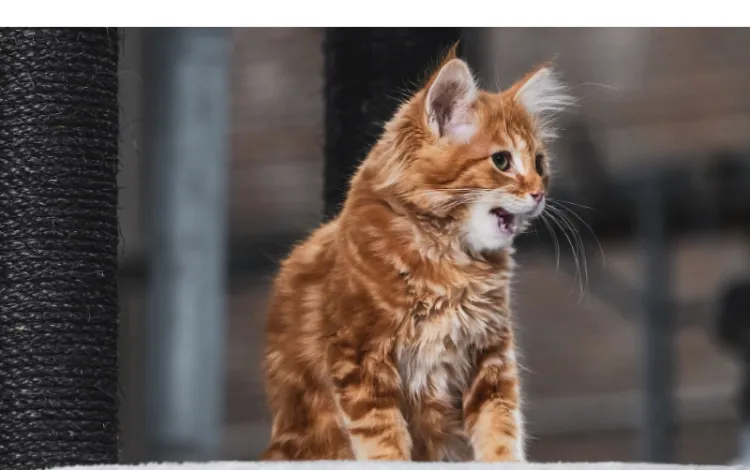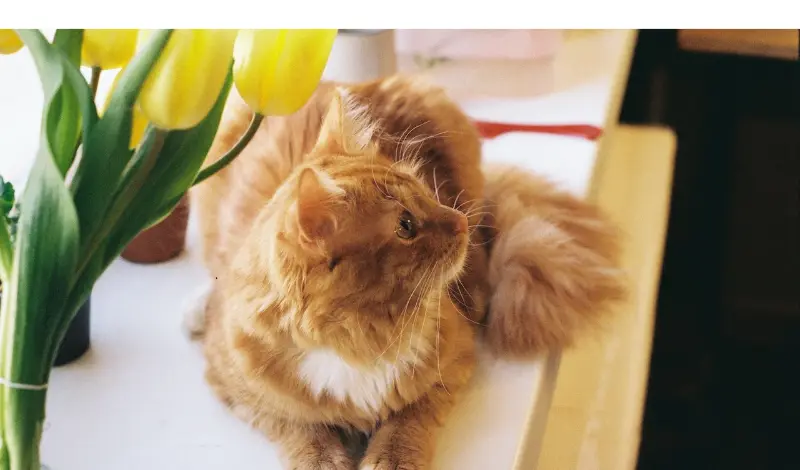As a pet lover, you might have wondered, are Maine Coons territorial? Well, Maine Coons are known for their majestic appearance, gentle demeanor, and, of course, their impressive size.
But when it comes to their territorial behavior, it’s essential to understand what drives these fluffy felines.
Cats, in general, can be territorial, but Maine Coons are a unique breed with specific traits that set them apart from others.
In this blog post, we’ll dive into the world of Maine Coon behavior and explore whether they’re territorial or not.
We’ll also provide tips on managing and preventing any territorial tendencies that may arise.
Before we begin, let’s share some fun facts about Maine Coons! Did you know that Maine Coons are the largest domestic cat breed?
They can reach up to 40 inches in length and weigh between 8 and 25 pounds. Another fun fact is that they have a water-resistant coat, which makes them excellent swimmers.
To learn more about their growth, check out our article on how quickly Maine Coon kittens grow.
Now, let’s start by examining the territorial instincts found in cats and how they relate to Maine Coons.
Territorial Instincts in Cats: A Quick Overview
Territorial behavior is quite common in the feline world. Cats are naturally territorial animals that use their instincts to establish and defend their territory against potential threats.
This behavior can be traced back to their wild ancestors who needed to protect their food sources, mating partners, and safe spaces for raising their young.
Territorial behavior in cats can manifest in various ways, such as marking their territory, displaying aggression, or exhibiting defensive postures.
But it’s essential to remember that not all cats are the same, and their behavior can be influenced by factors like genetics, early socialization, and individual personality.
So, how does this relate to Maine Coons? Are they as territorial as other breeds, or do they have a different approach? Let’s find out by taking a closer look at the Maine Coon breed and its unique characteristics.
And if you’re curious about their behavior with other cats, you might want to read our article on whether Maine Coons are aggressive to other cats.
Maine Coons and Territorial Behavior: The Facts
Understanding the Maine Coon breed’s specific traits will help us determine whether they are indeed territorial. Let’s examine a couple of key factors that influence their behavior:
Socialization and Early Development
Maine Coons are known for their sociable and friendly nature. They enjoy interacting with their human family members and are often referred to as the “gentle giants” of the cat world.
Their friendly disposition is partly due to proper socialization during their early development. When a Maine Coon kitten is exposed to different people, animals, and environments, they learn to be more adaptable and less likely to display territorial behaviors.
Male vs. Female Maine Coons
Although both male and female Maine Coons can exhibit territorial behavior, males tend to be more territorial, especially if they haven’t been neutered.
This is because male cats have a stronger drive to establish their territory to attract potential mates. However, Maine Coons, as a breed, tend to be less territorial compared to other cats, thanks to their easy-going nature.
To sum it up, Maine Coons may display territorial behavior, but they are generally less territorial than other breeds due to their friendly and social disposition.
Knowing the signs of territorial behavior in Maine Coons is essential to address any issues that may arise. So, let’s explore the common signs of territorial behavior in these gentle giants.
If you want to learn more about Maine Coon behaviors, take a look at our articles
Signs Your Maine Coon May Be Feeling Territorial
Although Maine Coons are generally less territorial than other breeds, it’s still essential to recognize the signs of territorial behavior in case your furry friend starts feeling threatened or insecure. Here are some common indicators of territorial behavior in Maine Coons:
Marking Their Territory
Cats often use scent marking to establish their territory. They may rub their cheeks or scratch surfaces to deposit their scent, which serves as a message to other cats.
If your Maine Coon is excessively scratching or rubbing objects around your home, they might be marking their territory.
Aggressive or Defensive Behavior
Territorial Maine Coons may display aggression or defensive behavior towards other animals or even people. Watch out for signs like hissing, growling, swatting, or puffed-up fur.
These behaviors indicate that your Maine Coon may feel threatened and is trying to assert dominance in their territory.
Vocalizations and Body Language
Maine Coons are known for their vocal nature, but excessive vocalizations like yowling or growling may indicate territorial behavior.
Additionally, pay attention to their body languages, such as the arched back, flattened ears, or dilated pupils, as these may also be signs of a territorial response.
Now that we know the signs of territorial behavior in Maine Coons let’s discuss how to prevent or manage these behaviors to ensure a harmonious living environment for both you and your fluffy companion.
How to Prevent or Manage Territorial Behavior in Maine Coons
Creating a comfortable and secure environment for your Maine Coon is crucial in preventing and managing territorial behavior.
Here are some tips to help you maintain a peaceful household with your gentle giant:
Introducing New Pets
Introducing a new pet to your Maine Coon should be done gradually and with care. Allow your Maine Coon and the new pet to sniff each other through a closed door or a baby gate initially.
Over time, you can slowly increase their interactions under supervision until they feel comfortable with each other.
Creating a Comfortable Environment
Provide your Maine Coon with multiple safe spaces, such as hiding spots, perches, and designated resting areas. Ensure there are enough resources like food, water, litter boxes, and toys to avoid competition and territorial disputes.
A comfortable environment will help your Maine Coon feel more secure and less likely to exhibit territorial behavior.
Consistent Training and Reinforcement
Use positive reinforcement techniques like treats, praise, and play to reward your Maine Coon for non-territorial behaviors.
Consistently reinforce good behavior and redirect any unwanted behaviors to help your Maine Coon understand what is expected of them.
Early socialization and proper training will also play a crucial role in preventing territorial tendencies in your Maine Coon.
By following these tips, you can create a harmonious living environment and prevent or manage territorial behavior in your Maine Coon.
Let’s wrap up with some final thoughts on coexisting with your gentle giant.
Conclusion: Coexisting with Your Maine Coon in Harmony
While Maine Coons may exhibit territorial behavior, their friendly and sociable nature generally makes them less territorial than other cat breeds.
By understanding the factors that influence their behavior, recognizing the signs of territorial tendencies, and providing a comfortable environment with proper training, you can successfully manage or prevent any territorial issues that may arise.
Remember, every cat is unique, and individual personalities can significantly affect their behavior. So, spend time getting to know your Maine Coon and its specific needs to ensure a happy and harmonious relationship.
With patience, love, and understanding, you can coexist with your Maine Coon and enjoy their affectionate companionship for years to come.
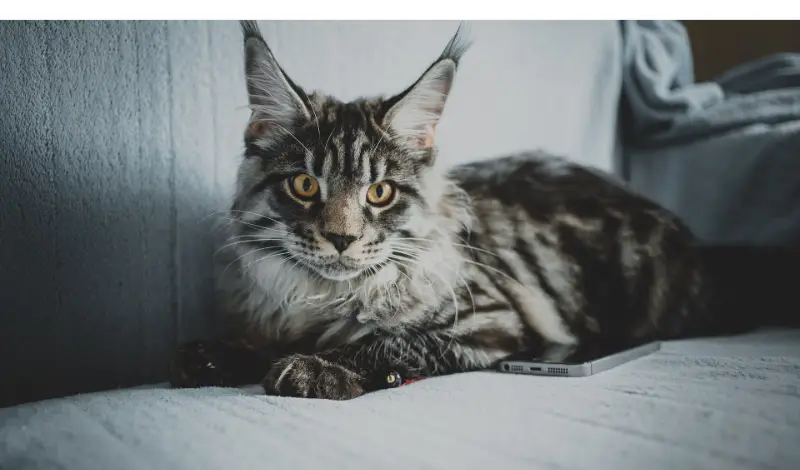
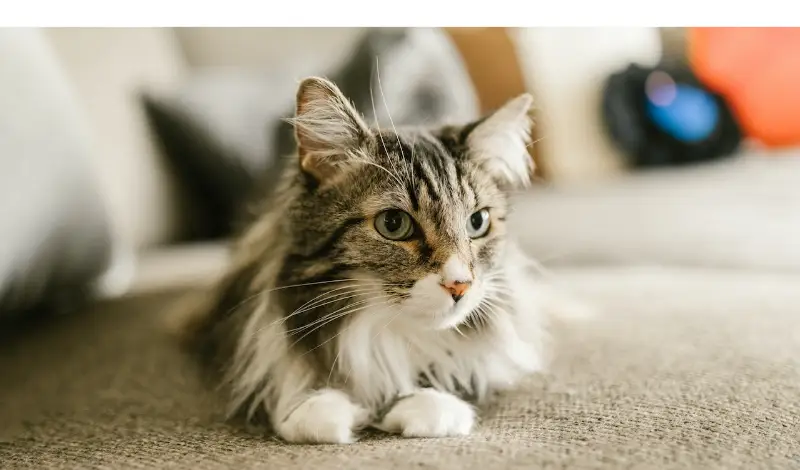
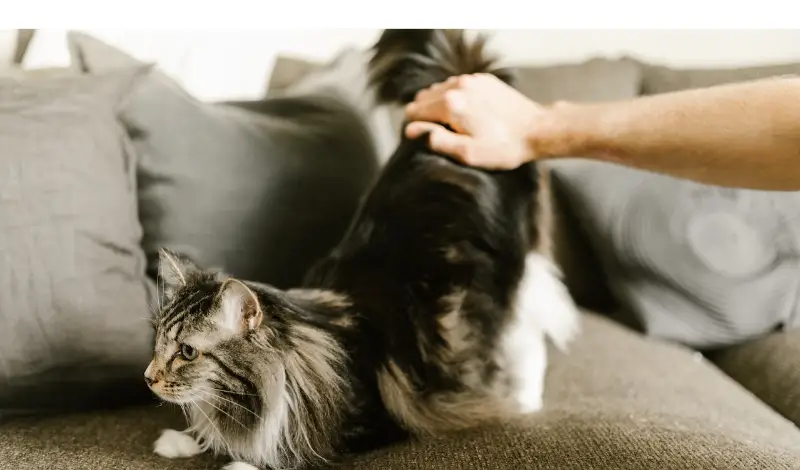
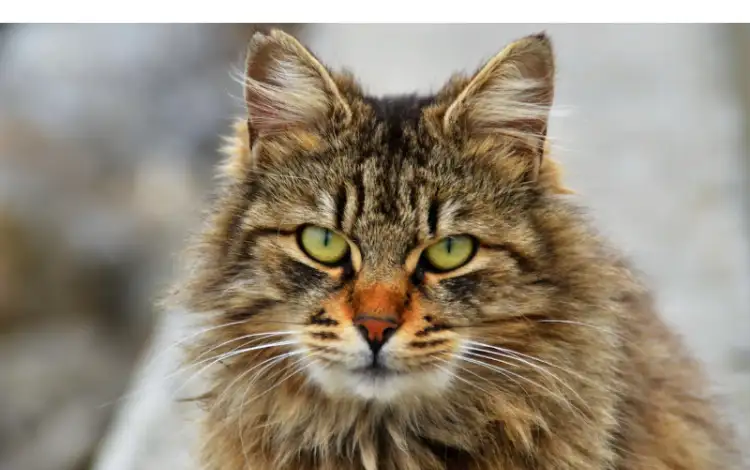
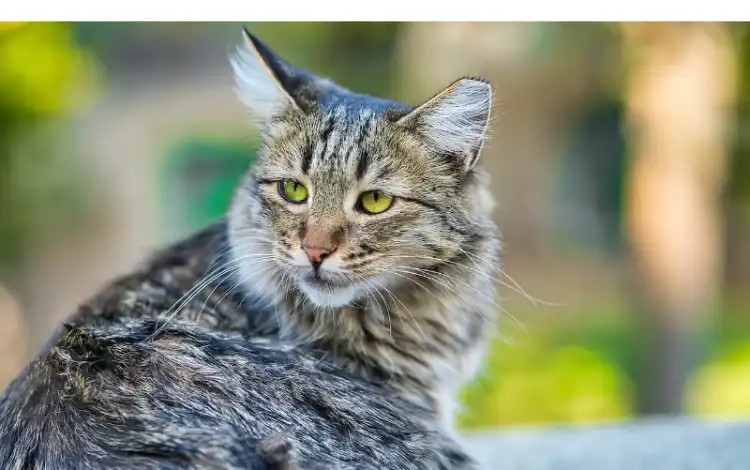
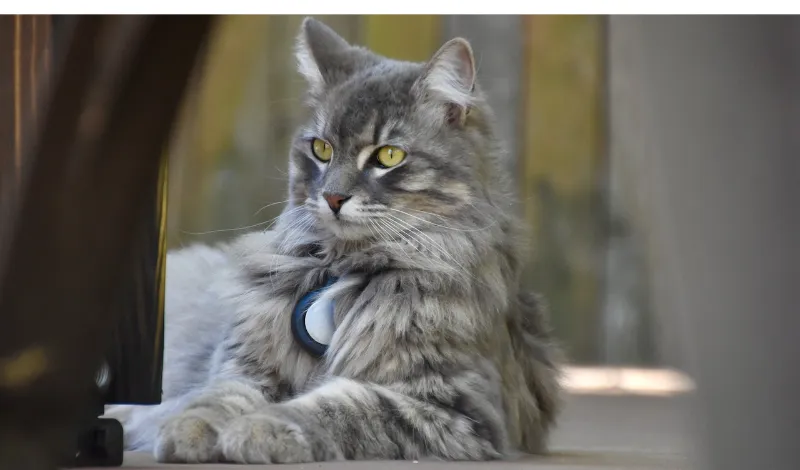
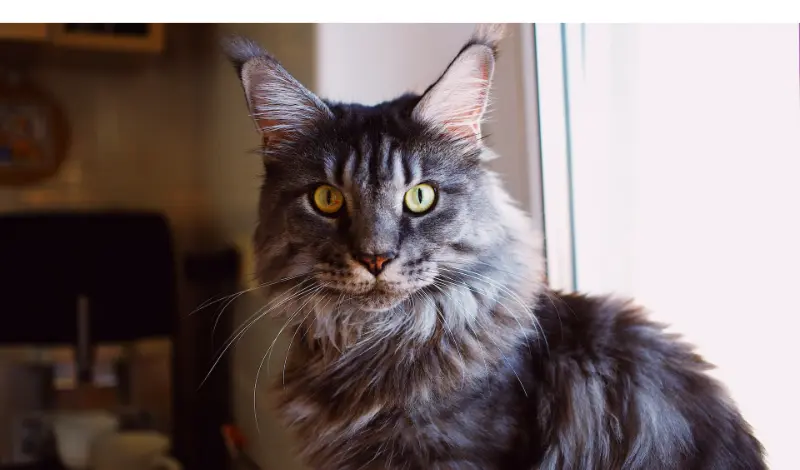
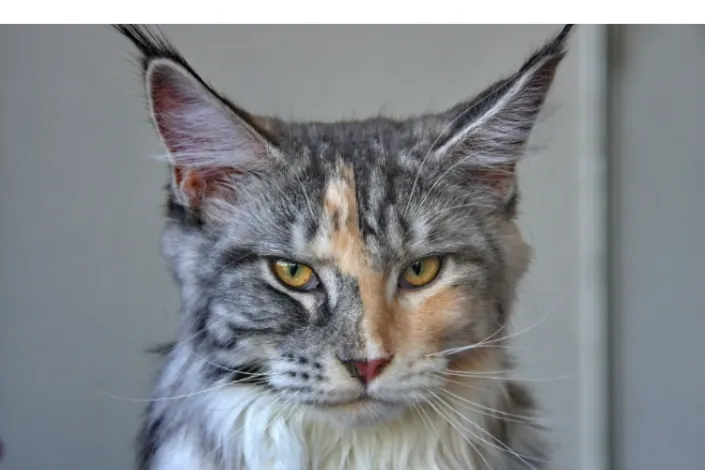
![why-maine-coon-follow-me-everywhere]](https://www.howtoanimal.com/wp-content/uploads/2023/04/Featured_Image_why-maine-coon-follow-me-everywhere.webp)
